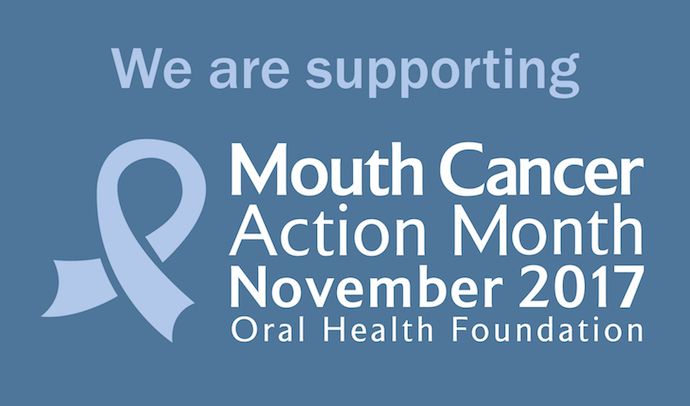Mouth Cancer Awareness
The Effects of Alcohol on Your Mouth and Teeth
Mouth Cancer Facts
Mouth cancer can affect anyone, although statistics show that it is more common in people over 40, particularly men. That said, recent research has shown that mouth cancer is becoming more common in younger patients and in women.
Exposure to risk can play a huge part in whether or not you are likely to develop mouth cancer. Around 91% (93% in males and 85% in females) of UK oral cancer diagnoses are linked to lifestyle choices.
One of these lifestyle choices is excessive alcohol consumption. Excessive is the key factor; the odd glass of wine here and there is much better than consuming an entire bottle in one evening.

Mouth cancer risk increases massively when alcohol and smoking are combined.
Alcohol and Mouth Cancer
To date research has yet to find the exact reason why alcohol consumption can be linked to so many cancers, but the theory with the strongest evidence is related to how our bodies process alcohol. The alcohol is converted into another chemical called acetaldehyde. Acetaldehyde can cause cancer by damaging our DNA and preventing it from being repaired. Drinking alcohol greatly increases the level of acetaldehyde found in saliva and a small study in 2012 found higher levels of DNA damage in the mouth cells of people after drinking alcohol.
The risk increases massively when alcohol and smoking are combined. Alcohol dries the mouth which allows for of the carcinogens from the tobacco to enter the body. Smoking and drinking together can increase the risk of developing mouth cancer by up to 30% more than just alcohol alone.
What are the signs of mouth cancer?
- Mouth cancer can appear in different forms and can affect all parts of the mouth, tongue and lips.
- Mouth cancer can appear as a painless mouth ulcer that does not heal normally.
- A white or red patch in the mouth can also develop into a cancer, as can any unusual lumps or swellings.
- Be mouthaware and look for changes in the mouth.
The Effects of Alcohol on Your Mouth and Teeth
Alcohol, Tooth Decay and Gum Disease
As well as increasing the risk of mouth cancer the acidic properties of alcoholic drinks will dry out your mouth and soften tooth enamel which can lead to gum disease and tooth decay.
The worst alcoholic drinks for your teeth are sparkling wine and drinks with carbonated mixers. The bubbles are caused by carbon dioxide which is very acidic. Sugary mixers and alcopops should be avoided for their high sugar content.
White wine is more acidic than red, although red wine can stain your teeth.
Beer is less bad for your teeth as it has a high calcium content, calcium promotes hardening of the teeth.
If you are drinking alcohol –
- Drink in moderation, avoid binge drinking.
- Sip water at the same time, wish it around your mouth to rinse away the alcohol.
- Chew sugar-free gum to stimulate saliva production and minimize damage.
- Reduce the effect of the acid in alcoholic drinks and the sugar in mixers by drinking through a straw, bypassing most of your teeth.
Each year over 1,800 people in the UK lose their life to mouth cancer. People with mouth cancer are more likely to die than those having cervical cancer or melanoma skin cancer. If mouth cancer is recognised early, then the chances of a cure are good, but sadly many people with mouth cancer go to their dentist or doctor too late.
How Can I Protect Myself Against Mouth Cancer?
- Visit your dentist regularly, as often as they recommend, even if you wear dentures.
- When brushing your teeth, look out for any changes in your mouth, and report any red or white patches, or ulcers, that have not cleared up within three weeks.
- A healthy, balanced diet that is rich in vitamins and minerals will help to protect against the development of mouth cancer.
- Cut down on your smoking and drinking.
- When exposed to the sun use a good protective sun cream and use a barrier cream on your lips.
For more information about mouth cancer visit mouthcancer.org. For advice on recommended alcohol limits and other support to help people make better choices about drinking visit drinkaware.co.uk.
At Smile Concepts we offer an oral cancer screen as a part of our new patient assessment. To make an appointment please call our reception team – 0121 705 2705.


